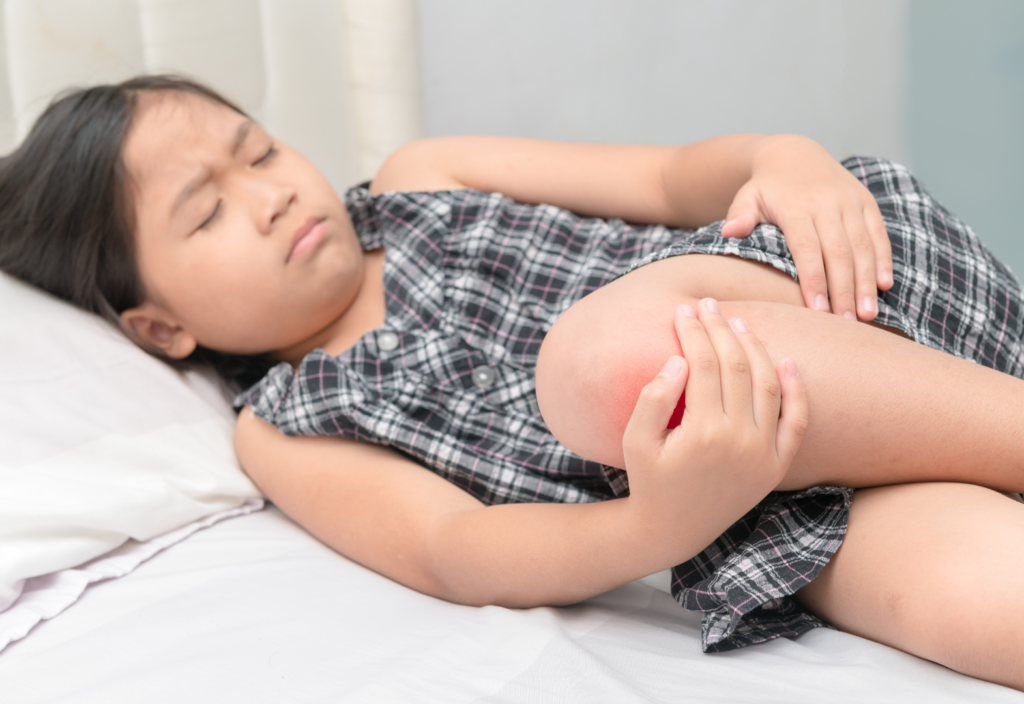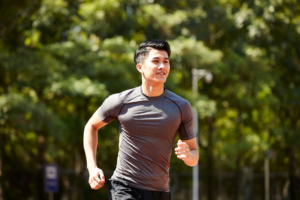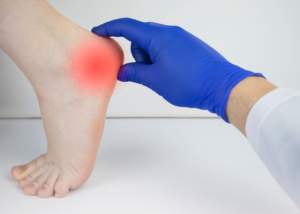We’ve been seeing a lot of children with a range of knee pains and concerns recently, and with them many concerned parents that want to know what’s going on, whether it could be something serious or ongoing, and what are the signs to watch for in the future that indicates they should have their children’s knees professionally examined.
As parents ourselves, we know how concerning it is to see your child limping, grasping their knee, not being able to keep up with their friends on the sports field, or simply seeing something that doesn’t look right. So today, we’ve shared some of these common concerns we’ve been seeing, what they mean, and what you can do to help.
First: What Are The Signs I Should Have My Child’s Knees Checked?
Having knee pain that persists, is aggravated by activity, and that comes and goes without ever truly resolving is the biggest sign for us that something is going wrong with the knee, and that an assessment is needed. This is as pain never happens for no reason – it is our body’s warning sign that something is going wrong and that damage is either occurring or that it will if left unmanaged. Other signs include:
- Knee problems are interfering with your child’s ability to do the things they love
- The knee feels weak or like it is giving out
- Limping and the knee not being able to support your child’s weight
- The kneecap feels like it is sliding out of place
- Stiff, restricted knee joints that don’t get better after two days
- A popping or clicking sound from the knee that causes pain
- The knee is swollen, and you’re not sure why, or the swelling isn’t easing
If you have previously been told that there is nothing that can be done for your child’s knee pain, or the cause has been uncertain or undetermined, we’d like to invite you into our clinic for a second opinion with our trusted, experienced health professionals.
Knock Knees (genu valgum)

Having ‘knocked knees’ means that the kneecaps are positioned close together while you are standing with your ankles a regular distance apart, and the knees may turn to face one another. This makes the knees more prone to knocking against one another when your child walks or runs. As knock knees are typically a normal and painless ‘phase’ that young children tend to go through during their development, being most prominent around the age of four years before the knees straighten, the good news is that observing this knee position in the younger years is not an immediate indication of a lifelong problem.
What we do see as a problem and cause of concern is when this knee position produces pain or other uncomfortable symptoms at any age, including contributing to regular tripping and falling, and therefore further injury. Knock knees that persist beyond the age of six and remain untreated can also lead to pain and degeneration of the knee joint, so an examination is highly recommended.
Knee Pain Caused By The Hips
It often comes as a surprise to parents to learn that their child’s knee pain may be being caused by their hips – specifically, weakness and imbalances in the muscles at their hip joint. This occurs because a number of the muscles around your hips like the gluteus medius play a big role in controlling the position of your knees when you walk, run and and jump. Without adequate strength, your thigh can rotate and abnormally pull inwards, placing strain on the knee joint and kneecap, creating painful consequences for your knee.
Managing hip weakness-related knee pain means starting a targeted hip and knee strengthening program, which we create especially for children with exercises that are safe, comfortable and straightforward for them. We will often use several other treatment components together to help optimise your child’s results and progress, based on the results of their comprehensive assessment with our team.
Knee Pain At Night: Growing Pains
When we hear about knee pain that has been persisting both day and night, one of the problems that we’ll always investigate is growing pains – specifically, a type of growing pain called Osgood Schlatter’s Disease that affects the knees.
Don’t worry about the term ‘disease’, Osgood Schlatter’s is a temporary growth-related condition that causes knee pain in growing children, usually between the ages of 7 and 15 years, and often in those that are active and participate in running sports. This knee pain occurs because a child’s bones and muscles are both growing, and can lengthen at uneven rates, resulting in increased muscle tension and pulling just below the knee cap, where a vulnerable area of bone called the growth plate is located. This leads to pain.
While we can’t change the rate of bone and muscle growth, we can use both supportive and exercise-based techniques to help reduce the strain from the muscles and tendons, which in most cases notably reduces pain and improves comfort in a short timeframe. This is a similar process with growing pains at the back of the heels, where we work on the Achilles tendon to help with heel pain in kids.
Runners Knee: Patellofemoral Pain
Patellofemoral pain occurs where the patella (kneecap) meets the top of the femur (thigh bone) – hence its name. It is often referred to as ‘runner’s knee’ due to it being often seen in runners, but it can actually affect anyone of all ages and activity levels, including our kids. Pain is typically felt at the front of and around the kneecap, occurring as an overuse injury where the kneecap moves out of alignment as the knee bends and straightens, damaging the joint.
We help children overcome runner’s knee by understanding what is causing their patella to mistrack, and solving this. It may be a tight or imbalanced muscle, alignment problems with the lower limbs, or their running technique, for example. As this knee pain has similar symptoms with other causes of knee pain such as patellar tendonitis, it’s important to have your child assessed and diagnosed, so the best course of treatment can be started.
What Should I Do If My Child Has Knee Pain?
If your child has knee pain, they’re exhibiting any of the warning signs above, or you’re concerned and want to have their knees checked, bring your child in to see our fantastic team of health professionals here at Sole Motion. Aside from being parents ourselves, working with children is one of our specialities, as we know how important it is for kids to be free to walk, run, play and explore without pain holding them back.
To book in, give our team a call on 1300 FX FEET or book online here.





